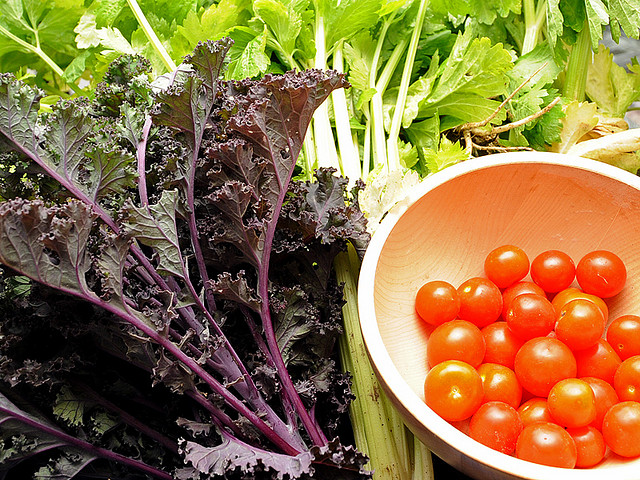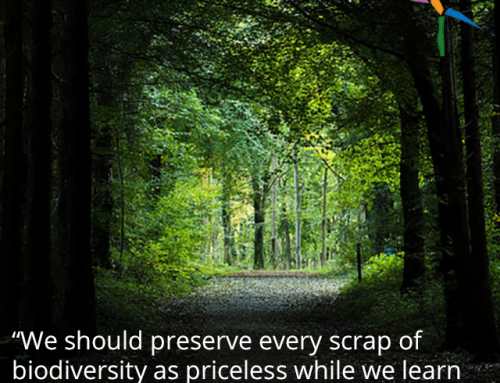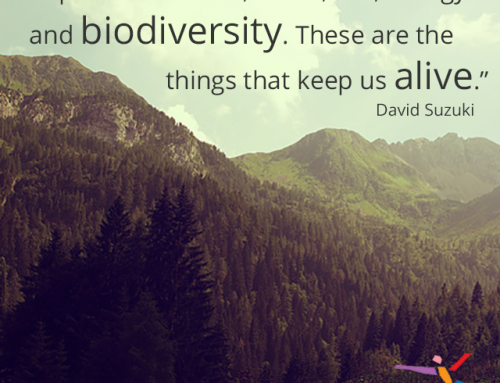May means gardening season. But the fact of the matter is that just because you’re growing your own plants, flowers, herbs and vegetables, it doesn’t mean that you’re doing an eco-friendly job of it. Over the years, the difference between planet-friendly gardening and common gardening practices has widened. In fact, you may not even realize how some of what you’re doing may be hurting the planet instead of helping it. Today, we’ve got five tips on how to make sure that your garden is as healthy for the earth as it is for you.
Tip One: Choose Gardening Soil and Fertilizer Carefully
You’re going to buy soil. And most likely you’re going to buy fertilizer, too. Common varieties of both of these things can be loaded with chemicals that “make things better.” Almost anywhere that you buy gardening supplies though, you can also buy gardening supplies that are organic and good for the planet. Creating plant life should always be good for the earth – so don’t actively sabotage your efforts by loading up ground water and soil supplies with unwanted chemicals. And while soil and fertilizer are important steps in this, the most important step is ….
Tip Two: Find Alternate Methods of Pest Control
Don’t spray your garden down with pesticides when there are plenty of other ways to make sure that your garden stays pest-free. Invite ladybugs into your garden (they eat other insects). Do the same for bug-eating birds via some birdfeeders. Traps and sticky strips are another way to decrease garden pests without spraying pesticides.
Tip Three: Water Responsibly
Your garden needs water, we’re not denying that. The question is this: “Does your garden need as much water as you’re giving it?” For example, auto-setting your sprinklers to go off every night to water your garden is just as wasteful as doing it with your lawn or yard. Take a wander out to your garden each night and see if the soil needs water. Use a watering can to avoid having to run unnecessary electricity or to waste excess water. Collect rain barrel water when it rains and re-use it to water your garden (just make sure that rainwater collection is legal where you live). You need to water your garden, but you don’t need to water it wastefully!
Tip Four: Garden Waste is Still Waste
What happens to weeds and excess organic matter in your garden? Do you put it in a trash bag and throw it out? Even if your garden materials are organic, once they go in a trash bag it may take decades for them to breakdown and decompose – because it may take decades for the trash bag itself to breakdown and decompose. Embrace the art of composting your garden waste. You’ll actually end up with healthy (and cheap) fertilizer or sod for the next year.
Tip Five: Don’t Waste Food!
Just because you grew it yourself, it doesn’t mean that you can afford to waste it! The amount of food wasted in America alone each year is astounding. It not only contributes to a huge carbon footprint, but it also doesn’t help to solve the food shortage that’s very real in America. Learn to preserve, can and freeze your garden leftovers and donate fresh items that are more than you will use to local food kitchens.
Gardening is, by nature, healthy and good for the planet. But you may make decisions along the way that negate your good decision making. Use these tips to ensure that the benefit of your garden to the planet is at its maximum level.
Did we miss a fact about eco-friendly gardening that you really, really feel that we should have shared? Tell us about it on the social media channels below.
Facebook | Twitter | Instagram | Tumblr | Pinterest | Google+
Related Information
Best Medicinal Plants for Your Bathroom
Best Plants to Give as Holiday Gifts
Photo Credit: Downing Street via Flickr





